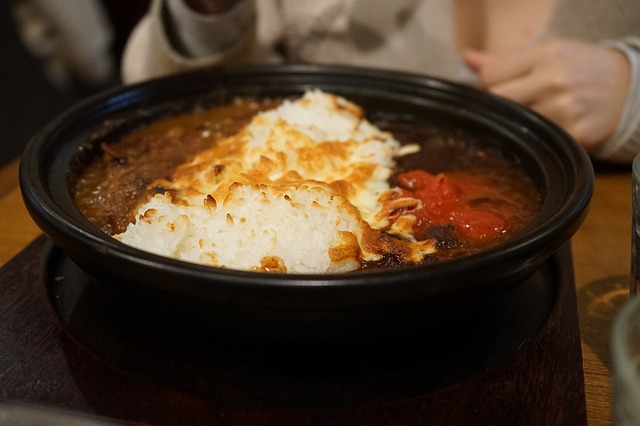Billion Dollar Unicorns: Swiggy Enters The Club With Massive Funding
According to RedSeer Consulting, India as a market holds tremendous potential for food delivery apps with the sector recording a 125% increase in order volumes. A huge beneficiary of this trend is Indian food delivery startup that recently entered the Billion Dollar Unicorn club.

Swiggy’s Offerings
Swiggy was founded in August 2014 by Nandan Reddy, Sriharsha Majety, and Rahul Jaimani in Bangalore. It was inspired by the thought of providing the urban foodie with a food ordering and delivery solution from the best restaurants in the neighborhood. It has its own exclusive fleet of delivery personnel who pick up orders from restaurants and deliver it to customers.
Swiggy’s main value proposition is that it has a no minimum order policy on any restaurant and accepts online payments. Today, it has about 40,000 restaurants on its platform, up from 5,000 in 2016. It currently operates in 31 cities including the major cities and tier-2 cities like Dehradun, Jaipur, Chandigarh, Kanpur, Vellore, Mysore, Nagpur, Pune, Pondicherry, Nashik, Tirupur, Vellore, Vijayawada, and Vizag. Swiggy has a fleet size of about 55,000.
Swiggy has about 14 million monthly orders and 0.5 million daily orders. In August 2018, Swiggy had over 19 million orders, followed by Zomato with over 12 million, UberEats with over 3 million, and FoodPanda with over 1.5 million.
Swiggy’s Expansion
In Novemer last year, Swiggy launched Swiggy Access in Bangalore. The delivery-only Access kitchen was shared by Swiggy’s own private brands, including The Bowl Company, House of Dabbas and Punjabi Rasoi as well as two of its restaurant partners Leon Grill and Keventers.
Through the Swiggy Access program, restaurant partners are charged a higher than normal commission fee but restaurants leading the bulk of order volume on the Access model get lower commissions. However, they still end up saving 25% operation costs as Swiggy does not charge any rent for the kitchen space. Only signature dishes are available at the Access kitchens and the restaurants are curated by Swiggy based on customer feedback, cuisine score, and quality of supply score.
After the success of its access kitchens, Swiggy is planning to open more such access kitchens in Delhi, Hyderabad, Kolkata, and Mumbai. It has also partnered with 300 restaurants to expand across 10 cities through delivery-only kitchens. The company plans to make its Access kitchens available across 30-40 cities by 2020.
In August this year, Swiggy launched a subscription program called Swiggy Super. It is priced at INR 99 -149 per month. Swiggy Super will offer users unlimited free deliveries across all 35,000 restaurants listed on the platform, irrespective of the distance or time of day. In addition, the membership program will ensure no surge fee for the user, better customer service, and exclusive offers from its restaurant and payment partners. The initial phase of the program has been rolled out to over 2 lakh users across 7 cities and will be formally launched for all users over the next three months.
Swiggy recently acquired Mumbai-based on-demand delivery firm Scootsy for INR 50 crore ($8 million). Scootsy had 2,000 orders each day and an average order value of INR 750. It had 700 delivery agents in the high-end parts of Mumbai like south Mumbai, Lower Parel, and some parts of Bandra. Scootsy was founded in 2015 and had raised INR 25 crore ($3.5 million) from Agnus Capital and Khattar Holdings. About 25-30% of its business came from non-food hyperlocal delivery operations including daily essentials, flowers, and gifting. Swiggy plans to use Scooty to get a foothold in the hyperlocal delivery market.
How has your experience with Swiggy been? What do you think about its expansion? How do you find its new subscription plan?
Swiggy’s Financials
Swiggy charges each restaurant between 16%-19% of the total order value as a fee for its delivery services. In select cities, it charges INR 30-40 as delivery fee on small orders below INR 150-250. Typically, about 15%-20% of a restaurant’s business is delivered through Swiggy. The delivery time is usually between 30 to 60 minutes and the average order is about INR 380.
Bundl Technologies, which owns Swiggy reported that its revenue increased six times to INR 133 crore ($18 million) in FY 2017 from INR 20 crore ($3 million) in 2016. Losses in FY 2017 bulged to INR 205 crore ($28 million) from INR 137 crore ($21 million) in 2016. Total expenses were INR 345 crore ($47 million) from INR 160 crore ($22 million) in 2016.
Swiggy is venture funded with $465.5 million in eight rounds from investors including Meituan Dianping, Coatue Management, Accel Partners, Bessemer Venture Partners, DST Global, Harmony Partners, Naspers, Norwest Venture Partners (NVP), RB Investments, and SAIF Partners. Last year, it raised $80 million in a Series E funding round that valued it at $400 million. In February this year, it raised $100 million at a valuation of $700 million. Then in June, Swiggy raised $210 million at a valuation of $1.3 billion.
Swiggy is reportedly in talks to raise up to $500 million at a valuation of $2.3-$2.5 billion from new investors including Softbank, and Chinese hedge funds Tybourne Capital and Hillhouse Capital. Rival Zomato had raised $200 million in February this year at a valuation of $1.1 billion and is reportedly in talks to raise another $300 million at a valuation of $2 billion. Both the companies have been spending $18-$20 million in expansion and discounts in new and existing cities. While that has led to increased order volume, it is also forcing them to raise capital at frequent intervals.



